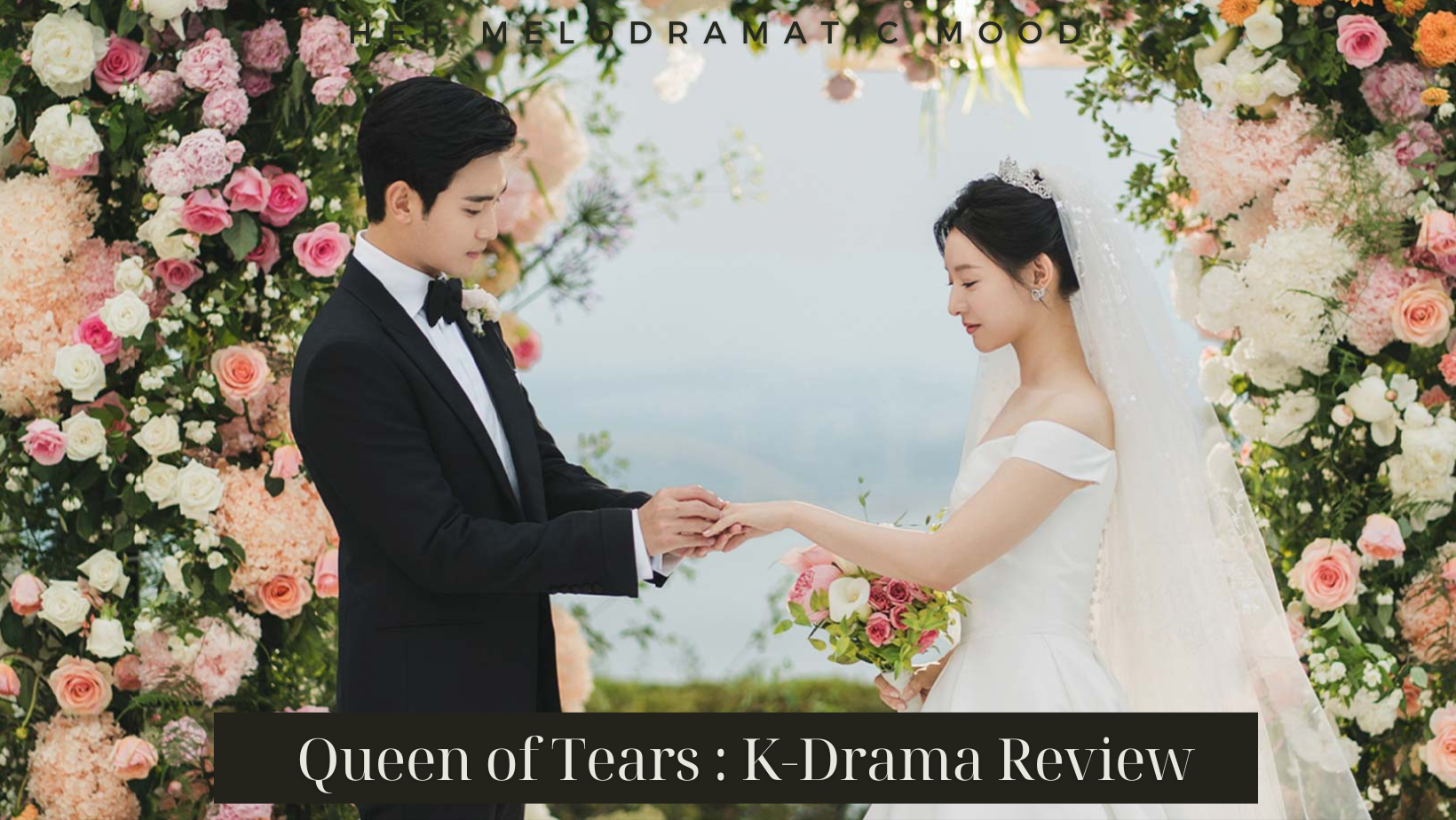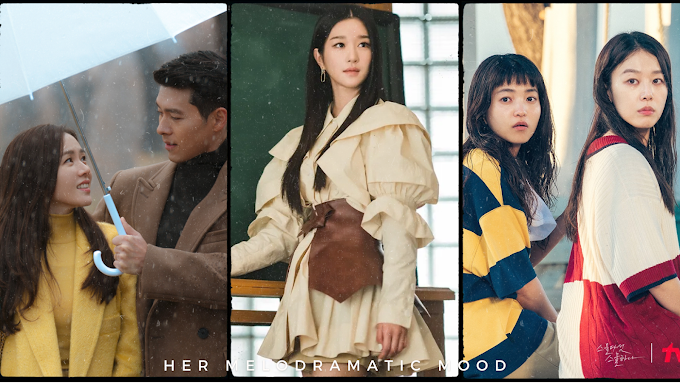"Queen of Tears," directed by Jang Young-woo and Kim Hee-won, is a gripping Korean drama that pulls at the heartstrings. The drama is about love, grief, and second chances, all set against the backdrop of a failing marriage. Let's look at the many features of this tearjerker.
Plot Summary
At the heart of "Queen of Tears" lies the story of Hong Hae-in (Kim Ji-won) and Baek Hyun-woo (Kim Soo-hyun), whose marriage teeters on the brink of collapse. As the heir to the Queens department store, Hae-in's life appears to be one of privilege, yet her marriage to Hyun-woo, the legal director of Queens group, is devoid of love and passion. However, their world is turned upside down when Hyun-woo learns of Hae-in's terminal illness, giving them only three months together. Amidst the looming shadow of mortality, the couple embarks on a journey of self-discovery, grappling with their own emotions and the fragility of life itself. As they confront their past, present, and uncertain future, "Queen of Tears" unfolds into a poignant exploration of love, sacrifice, and the transformative power of forgiveness.
Likes
1. Emotional Depth:
The emotional depth of "Queen of Tears" is further accentuated by its subtle exploration of nuanced emotions such as regret, longing, and acceptance. From the quiet moments of introspection to the explosive confrontations, every scene resonates with authenticity, drawing viewers deeper into the characters' inner turmoil.
2. Lead Actors:
Beyond their individual performances, Kim Ji-won and Kim Soo-hyun share a mesmerizing on-screen chemistry that elevates the drama to new heights. Their nuanced portrayal of Hae-in and Hyun-woo's evolving relationship is a testament to their talent and dedication, making it impossible for viewers to look away.
3. Redemption Arc:
In addition to Hyun-woo's journey towards redemption, "Queen of Tears" also offers compelling character arcs for its supporting cast, each grappling with their own demons and insecurities. Whether it's Hae-in's loyal friend struggling to come to terms with her impending loss or Hyun-woo's colleague seeking forgiveness for past transgressions, every character adds depth and complexity to the narrative.
4. Heartfelt Dialogues:
The dialogue in "Queen of Tears" is as poignant as it is profound, capturing the essence of human relationships with remarkable clarity and insight. From heartfelt confessions to bittersweet farewells, every word is imbued with meaning, leaving a lasting impression on viewers long after the episode ends.
5. Cinematic Excellence:
Beyond its compelling storyline and performances, "Queen of Tears" is a visual masterpiece, with stunning cinematography that transports viewers into the heart of each scene. From sweeping landscapes to intimate close-ups, every frame is meticulously crafted to evoke maximum emotional impact, enhancing the overall viewing experience.
Dislikes:
1. Predictability:
While "Queen of Tears" excels in its emotional resonance, its narrative occasionally falls into predictable tropes and clichés, particularly in its treatment of certain plot twists and character developments. A greater emphasis on originality and innovation could have elevated the drama to even greater heights, keeping viewers on the edge of their seats until the very end.
2. Underdeveloped Subplots:
Despite its rich tapestry of storytelling, "Queen of Tears" struggles to fully explore all of its subplots and secondary characters, leaving certain storylines feeling underdeveloped or unresolved. A more streamlined approach to storytelling could have allowed for greater depth and complexity, ensuring that every narrative thread receives the attention it deserves.
3. Lack of Diversity:
While "Queen of Tears" excels in its portrayal of complex human emotions, its representation of diversity and inclusion leaves much to be desired. The predominantly homogeneous cast and lack of diverse perspectives may limit its appeal to a wider audience, overlooking the rich tapestry of experiences and identities that make up the world we live in.
4. Excessive Melodrama:
At times, "Queen of Tears" veers into the realm of excessive melodrama, with certain scenes and plot developments bordering on the melodramatic. While emotional intensity is a hallmark of the genre, an over-reliance on melodramatic tropes can detract from the authenticity of the storytelling, risking emotional fatigue and viewer disengagement.
5. Episodic Filler:
Despite its compelling central storyline, "Queen of Tears" is not immune to the pitfalls of episodic filler, with certain episodes feeling more like placeholders than integral parts of the narrative. A tighter focus on advancing the central plot and character development could have maintained momentum and sustained viewer interest throughout the series.
Themes and Impact
"Queen of Tears" delves into themes of love, sacrifice, and mortality. It teaches us to treasure every moment and appreciate the ones we care about. Regardless of its imperfections, the drama has a lasting impression. As spectators, we think about our own relationships and the value of forgiveness and second chances.
Conclusion
In conclusion, "Queen of Tears" stands as a testament to the transformative power of storytelling, captivating audiences with its emotional depth, powerhouse performances, and resonant themes. Whether you're a seasoned fan of Korean drama or a newcomer to the genre, this tearjerker promises an unforgettable journey of love, sorrow, and redemption. So, grab your tissues and prepare to be moved as you immerse yourself in the heart-wrenching world of "Queen of Tears."
Episode Recap and Review
Queen of Tears Episode 1 & 2 Recap & Review
Queen of Tears Episode 3 & 4 Recap & Review
Queen of Tears Episode 5 & 6 Recap & Review
Queen of Tears Episode 7 & 8 Recap & Review






.png)



0 Comments